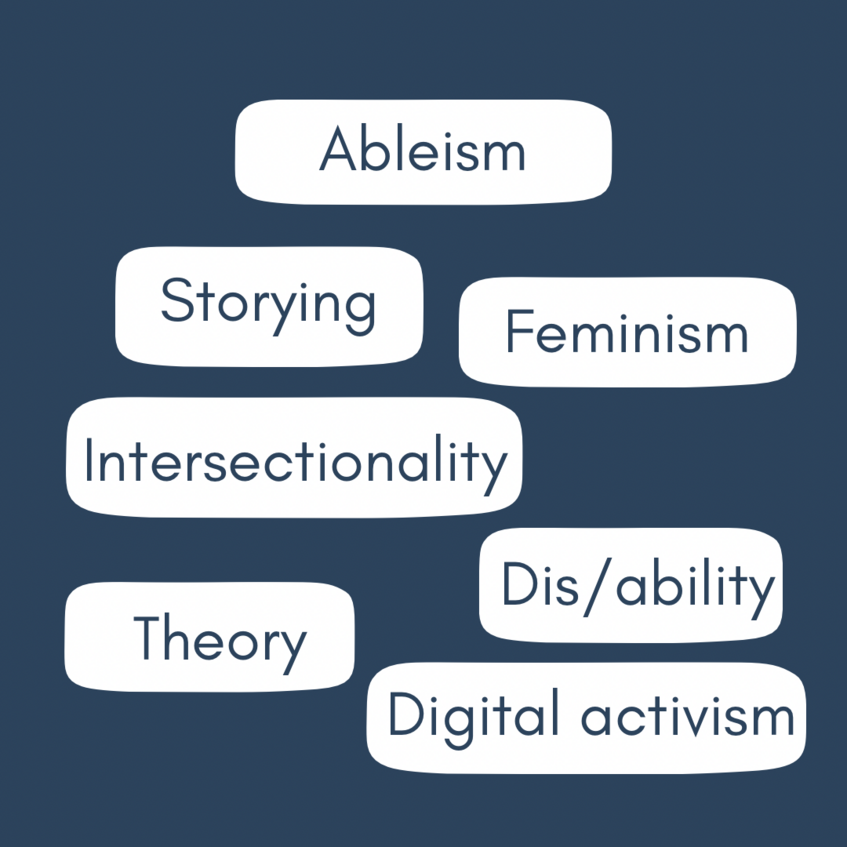Research project

Keywords
Together with feminist disabled collaborators from different countries in the global north, this research project examines how, by/for whom and for what purpose ableism has been discussed in scholarship and activism so far. The focus of this is how the interplay of (dis)ability, gender, social class, and race is considered in debates on ableism. Furthermore, it will be explored how the collaborators themselves criticise ableism and notions of corporeal normality in their works (e.g. in digital activism, poetry and performances, the art and culture scene or in research) and to what extent they thereby refer to various forms of disadvantage but also privilege that shape the effects of ableism. With individual emphases, the cooperation partners collect 'stories' about and against ableism, which are discussed, contrasted, interconnected and storied further. Together, the effects of ableism, both in relation to disability and beyond, especially on women and female read people is examined. The aim of the research project is to collaboratively create a feminist intersectional approach to ableism and to explore how such an approach reveals notions of ability (or rather ‘abledment’) in different contexts.
| Individual Focus Areas on Ableism |
|---|
| Eva Egermann: Ableism experienced in the cultural and art scene |
| Maria R. Palacios: Sexuality, ableism, and ageism |
| Ingrid Palmer: Racist ableism toward women in the workplace |
| Marlene Krubner: Disability pride and joy in an ableist world |
| Marjorie Aunos: Children’s anti-ableist perspectives on disabled caregivers |
